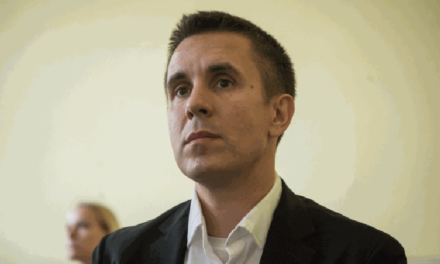In recent days, Eurostat's recent data has come to light, according to which the consumption of Hungarian households reaches 70 percent of the EU average. Several people misinterpreted the data and deliberately misled public opinion, stating that Hungary is the poorest country in the EU, which is complete nonsense and a deliberate lie, the Ministry of National Economy (NGM) announced.
According to the announcement, "Economic simplicity" is based on the fact that families consume or save their income based on their own decisions. That way
the consumption data by itself can only be interpreted to a limited extent, drawing a conclusion about poverty from it is a malicious slip.
The facts, on the other hand, show that as a result of the war taking place next door, the cautionary motive of Hungarian families has been strengthened in a completely natural way. Thus, the gross savings rate of the population increased even further from the previously high level and exceeded the level of 21 percent, which is the highest value within the Union. Consequently
Hungarian families do not spend their income, but save it.
This is supported by the fact that, compared to the beginning of 2022, the gross financial assets of Hungarian families increased by more than 22.5 thousand billion forints (compared to the beginning of 2010 by 72 thousand billion forints), so it already exceeds 102 thousand billion forints, they wrote.
In an international comparison, it can be stated that the net wealth of Hungarian families exceeds 106 percent of GDP, which puts it in the middle of the EU. In this regard, our country is ahead of countries in the region such as Slovakia, Romania or Poland. As a result of the high propensity to save
In 2023, the interest income of Hungarian households as a percentage of GDP was the highest in the European Union, the Hungarian value of 4 percent was more than twice the EU average of 1.9 percent.
This is largely due to successful self-financing, since for years, the stock of government securities owned by households has been the highest in Hungary as a proportion of the gross public debt, at the end of 2023, 21.9 percent of the Hungarian gross public debt was owned by households in the form of government securities. The basis of the savings is the constantly rising wage level and increasing employment. Compared to 2010, there are 1 million more people working, while unemployment is one of the lowest in the EU.
In addition, Hungarian families are getting higher and higher incomes, the gross average salary is close to HUF 660,000, which is already more than three times as much as it was during the time of the dollar left. The government achieved an even greater increase in the minimum wage and the guaranteed minimum wage, which have already increased by more than 3.6 times compared to 2010.
This growth rate is among the top in the EU.
In other words, more and more people earn more in Hungary, and salaries are worth more and more. In the past decade, real wages have been rising continuously, a rise that was only temporarily halted by the war, as the government suppressed inflation, so from September the usual increase in the purchasing power of salaries will resume in previous years.
In Hungary, as a result of rising wages and increasing employment, poverty ultimately decreased significantly, because according to the EU methodology, the number of people at risk of poverty or social exclusion decreased by more than 1.2-1.3 million compared to 2010, thus
the poverty rate fell well below the EU average, which represents an epoch-making result.
In addition, it is encouraging that the volume of retail trade has been continuously increasing for the fourth month on an annual basis, i.e. families are consuming more and more, so the motive of caution is increasingly dissolving. All this contributes to increasing the pace of economic growth, the announcement reads.
MTI
Cover image: Photo: Zsolt Szigetváry | Source: MTI/MTVA













